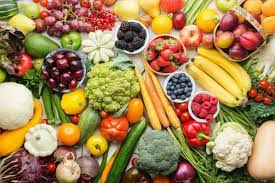Value added for the agriculture, forestry & fishing industry expanded by approximately 17 per cent for July-September 2022 when compared to the same period of the prior year, according to recent data provided by the Statistical Institute of Jamaica (Statin).
This represents the highest increase for the sector since the third quarter of 2021, which saw the industry's growth more than doubling from 7.3 per cent in that year to 17 per cent in 2022. Strong out-turns of 13.8 per cent, 8.4 per cent and 6.3 per cent were also recorded across the reported quarters.
"This resulted from growth in both sub-industries, other agricultural crops [which include animal farming, forestry & fishing] and traditional export crops of 17.0 per cent and 16.8 per cent, respectively," Statin reported.
According to its findings, vast increases in vegetable production across most major crops, increased harvest and an increase in broiler production and animal rearing all contributed to the sustained growth seen for the sector. Growth in traditional export crops mainly plantains and bananas also positively impacted the sector's developments.
Statin in the third quarter review further said that the industry's performance could also be "largely attributed to the continuation of some programmes initiated by Government, aimed specifically at optimising productivity along with increased investments in crop production and more support for marketing strategies."
The initiatives, which include the 'Grow Smart, Eat Smart Campaign', also comprise other programmes such as the planting with a purpose and farming in school projects, all of which forms part of more than 40 initiatives being led by the Ministry of Agriculture.
Minister of Agriculture Pearnel Charles Jr, commenting on the initiatives, said they were are geared towards driving greater productivity and sustainability for the agriculture sector which is largely vulnerable to weather and other shocks. The initiatives spans programmes across food security, agribusiness development, climate-smart technologies, and export expansion pillars.
President of the Jamaica Agricultural Society (JAS) Lenworth Fulton, welcoming the continuous growth of the sector following the fall-outs experienced since the novel coronavirus pandemic, said that going forward challenges such as a growing food import bill must, however, be seriously dealt with.
"Although agriculture has grown by 17 per cent, the volume of rice and flour and even sugar, cornmeal and animal feed that we have to be importing dampers our position and we must work to address this immediately to have even more growth," he said.
In his outlook for the sector in 2023, the JAS head said it was his hope for better policies to be drafted around land reform and distribution, agricultural financing and insurance as well as import reduction and used to drive some other initiatives.
Calling for stronger bipartisan support on agriculture, he saidthat this was greatly needed "to get more lands into production, to build warehouses, expand irrigation schemes and to develop a central marketing system" for the industry.
According to Statin in its economic review, the economy grew by an overall 5.9 per cent in the quarter, with not only the agriculture sector contributing, but also manufacturing which increased by 9.5 per cent and tourism being the star performer among the services sector.
Contractions were recorded for mining and construction, 27.6 per cent and 3.1 per cent, respectively.
The services sector, however, grew 6 per cent. The dominant hotels and restaurants industry led the growth following outputs of 35.3 per cent. The expansion of this industry came as a result of increased activities in hotels and other short-stay accommodation, restaurants, bars and canteens. The hotels & other short-stay accommodation segment was also positively impacted by a 49.2 per cent increase in foreign national arrivals during the period.
Across the services sector, strong growth was also reported for other industries such as 'Other Services' which went up 13.1 per cent; 'Transport, Storage & Communication' (up 5.9 per cent) and 'Wholesale & Retail Trade; Repairs Installation of Machinery & Equipment' (up 5.3 per cent).
"When compared to the second quarter of 2022 the economy grew by 2.1 per cent. This was due to growth in both the services and the goods-producing industries of 1.2 per cent and 4.5 per cent, respectively," Statin said.

